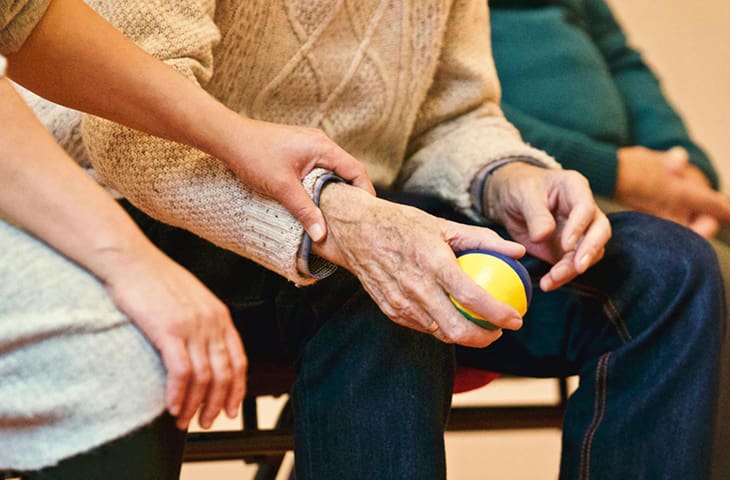Stopping Migrant Care Workers Bringing Their Families Will Have A Devastating Effect On The Uk’s Already Struggling Care Sector

The home secretary, James Cleverly, has reiterated the UK government’s plan to stop overseas care workers bringing dependants to the UK. Taking to X (formerly Twitter) on February 19, he wrote: “Today in Parliament we have laid out an order to ban overseas care workers from bringing dependants. This is just one part of our plan to deliver the biggest-ever cut in migration.”
This follows the strategy Cleverly announced in December 2023 to restrict the use of the health and care worker visa. The UK government’s stated aim is to cut net annual migration by 300,000 people.
But the government’s plan belies how dramatic the situation facing the wider care sector is. In 2022-23, one in ten posts in the adult social care workforce in England were vacant. In the aftermath of the pandemic, the British government admitted more migrant care workers than ever, largely to fill this gap in the workforce.
Care work is extremely taxing, emotionally and physically. And it is poorly paid. I should know: before becoming an academic, I was one of the over 3 million low-paid workers in the UK’s complex care industry.
And for migrant workers, the challenges of the job are compounded by an increasingly hostile immigration system. My research shows that being separated from family causes serious relational and emotional harms.
 Carers provide an invaluable service.
Shutterstock
Carers provide an invaluable service.
Shutterstock
Restricting migrant workers’ rights
Psychologists and lawyers I have interviewed highlight how distressing it is for people to be separated from their families. It can affect their ability to move forward with their lives, and leads to financial, mental and even physical hardship.
So, the government’s plan will make being a migrant carer significantly harder. Care work involves long hours treating illness, facing deaths and undertaking nightshifts. When I worked as a carer, the shifts I was given were generally 12 hours long. The job included doing anything from interpersonal care to food provision and lifting people who were unable to move independently.
I was more than thankful for the support of my migrant co-workers. But for them, the stresses of the job were compounded by the discrimination they could face from care home residents and their families, as well as colleagues and managers.
Immigrants to the UK have to contend with an ever more hostile immigration system. Under these new proposals, economic migrant workers will not be allowed to bring their dependants with them. The proposals also make it harder for care providers in England to be able to sponsor migrant workers’ own visa requests.
Governments across western Europe have justified hostile immigration policies on the grounds that restricting immigration protects the welfare state. In other words, they posit migrants as a threat to the country’s economic and social wellbeing.
Similarly, the UK government’s restrictions on migrant care workers’ rights frames immigrants as a root cause of economic problems. This ignores the fact that the UK depends on its migrant workforce of carers more than most EU countries. In September 2021, 21% of NHS England’s hospital and community health service workforce was made up of overseas workers.
The drive to target migrant care workers is particularly galling, given it was this government who actively sought to reduce the crisis in care by recruiting overseas workers. The health and care worker visa was launched in 2020, in a direct response to the pandemic-led need for more healthcare workers.
In the 12 months from September 2022, 101,000 of these visas were issued to care workers and senior care workers from overseas. Further, 120,000 visas were granted to carers’ dependants.
 The UK care workforce is under severe pressure.
Shutterstock
The UK care workforce is under severe pressure.
Shutterstock
The pandemic saw frontline healthcare staff championed as “angels” and “superheroes”. That contrasts heavily with the language Cleverly has used to describe migrant care workers. In his announcement, he raised concerns about “high levels of non-compliance” and “worker exploitation and abuse” within the adult social care sector. He has also cited the majority of care-worker dependants not working but “making use of public services” as a reason for the new restrictions.
The government’s disregard for these workers and their families is reminiscent of other examples of migrants being recruited and then later undermined. In 1948, Britain opened its doors to citizens of its colonies to fill labour market voids from wartime losses. The NHS leaned heavily on migrant workers and within 10 years, around 125,000 West Indians and a further 55,000 people from India and Pakistan had come to the UK to work.
But, as the ongoing Windrush scandal shows, thousands of those workers and their families have since been refused existing residency rights, lost livelihoods and access to healthcare, and been threatened with deportation.
The home secretary is seeking to deter rather than attract people to provide an immeasurably valuable service. The irony that those who are caring for UK residents’ families, friends and neighbours are being “banned” from caring for their own should not be ignored.
Victoria Canning has received funding from UKRI and British Academy.


